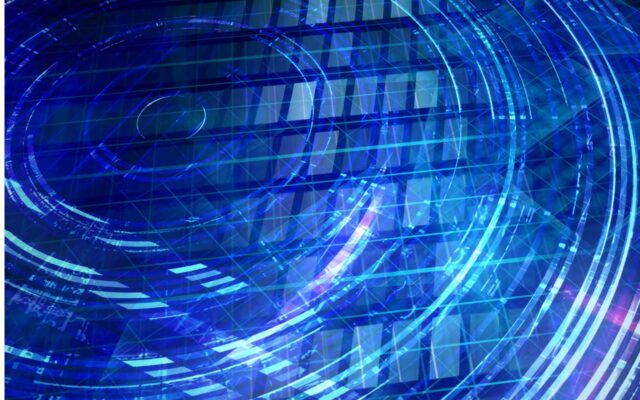The boundaries of IT are no longer constrained to a physical data center making cybersecurity and cyber resilience a constant challenge. Perimeters are distributed, virtual, spread across multiple clouds and transporting massive amounts of data. The sheer amount of data alone presents a growing challenge. Organizations are now managing 10x the data they were just five years ago, almost 15 petabytes on average now.¹
Our “always on,” “driven by data” operating models, if not properly secured, create an abundance of new attack surfaces and vulnerabilities to the business.
Dell’s 2021 Global Data Protection Index found that:
-
- 60% of organizations have experienced data loss due to an exploited vulnerability
- 65% of IT decision makers are not confident their data/systems can be fully recovered¹
To meet these challenges, a mature and resilient security posture for data, applications and devices is required. This modern approach leverages innovative technologies, aligns around the business rather than the threat, is proactive in recovery planning and defends the organization. In short, to be fully prepared, organizations need to “Embrace the Breach,” as Gartner would state in their July 2021 Mavericks Report “You Will Be Hacked, So Embrace the Breach”.
Dell believes that today’s security and resilience challenges require going beyond the outdated notion that every potential threat can be stopped. Being cyber resilient means assuming that despite your best efforts, attacks will still penetrate the environment. Shifting to such a mindset means balancing detection, protection, response and ultimately recovery in order to continue operations with minimal downtime, data loss, and business disruption. This is what being resilient means.
Innovate Securely with Comprehensive Cyber Resilience
Addressing the continuous threat landscape, Dell’s modern approach to security and resilience is based on the following three pillars:
-
- Protect data and systems – Modernize organization’s security approach to storage utilizing innovative software and intrinsic features in hardware and data protection
- Enhance cyber resiliency – Build out organizations understanding of their current level of resilience and prepare for business continuity and availability
- Overcome security complexity – Automate and orchestrate organizations security operations to enable scale, insights and extend resources through service partnerships
Power Your Organization
For get the best understanding of how prepared your environment is for a cyberattack, take the Dell Cyber Resilience Assessment. Here, you can identify gaps in your cyber response preparedness and gain the knowledge needed to begin to close these gaps.
Once you have identified potential security gaps, you will want to fortify your infrastructure with Dell. Dell’s relentless cybersecurity focus during development, combined with our broad business use case experience, culminates in a world-class portfolio of secure systems, solutions and services. Whether those systems run at the edge, in a core data center or co-location facility, or in a cloud, they provide the trusted infrastructure foundation that enables next-gen innovation. At Dell Technologies World, we introduced significant cyber resiliency enhancements to protect your infrastructure and data from the latest cyberthreats.
Dell PowerMax, the world’s most secure mission-critical storage¹, introduces new cyber resiliency advancements to prevent, detect and recover from cyberattacks. We’ve added multi-factor authentication based on RSA SecureID to prevent unauthorized access to the management interface. Additionally, we have added continuous ransomware anomaly detection and alerting with machine learning to notify users of suspicious activity. Dell has also added native air-gapped cyber vaults for open systems and mainframe deployments to help customers recover from ransomware attacks. Dell PowerMax is designed from the ground up with Zero Trust in mind to provide our customers with the best tools to safeguard their most important asset, their data.
APEX Cyber Recovery Services is a complete on-premises solution – delivered as-a-Service – for customers seeking to protect their critical data against the increasing threat of cyberattacks and ransomware.
Additionally, Dell is extending the reach of its multi-cloud ecosystem with the release of PowerProtect Cyber Recovery for Microsoft Azure as well as CyberSense for Dell PowerProtect Cyber Recovery for AWS.
Availability
-
- Next generation PowerMax systems and software release will be available globally in July 2022.
- Dell APEX Cyber Recovery Services is available today in the United States with broader availability planned for later this year.
- Dell PowerProtect Cyber Recovery for Microsoft Azure will be globally available in the second half of 2022.
- CyberSense for Dell PowerProtect Cyber Recovery for AWS will be globally available in the second half of 2022.
In ESG’s latest cyber research, “45% of organizations feel they lack sufficient personnel tasked with supporting their ransomware readiness position.” If you feel this way, not to worry, Dell has a deep bench of Data and Cyber Resilience experts waiting to help you, fortify your security posture and help with recovery in the event an attack does get through. Dell Technologies is the one trusted partner who best understands today’s end-to-end cyber-challenges.
Dell will stop at nothing to help our customers build their breakthrough. Our comprehensive cyber resiliency is designed to help ensure that any organization can innovate securely invest with confidence and make business breakthroughs
1 Based on Based on Dell internal analysis of cybersecurity capabilities of Dell PowerMax versus cybersecurity capabilities of competitive mainstream arrays supporting open systems and mainframe storage, March 2022.


